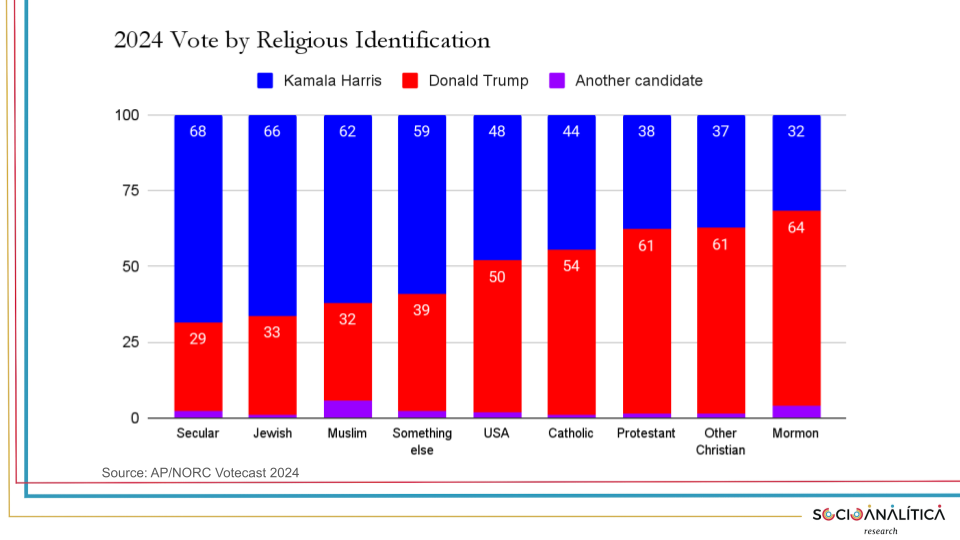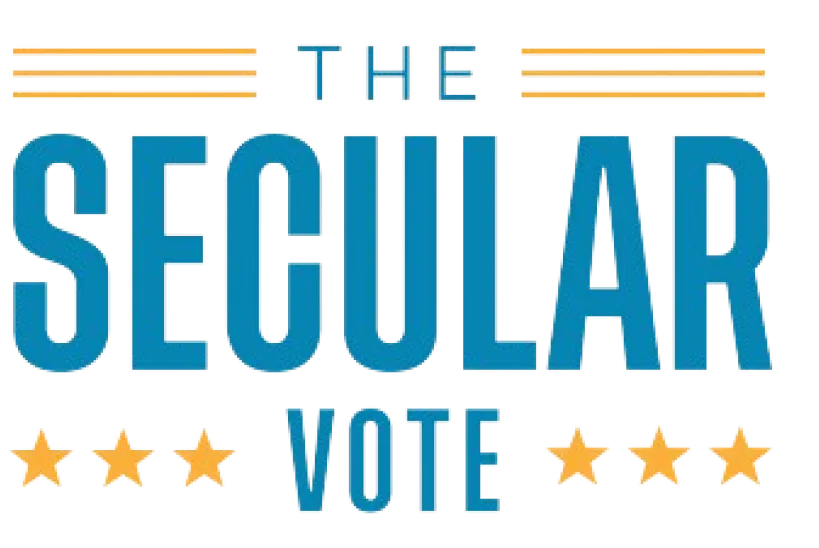Most secular Americans are expected to vote for the Democratic Party candidate in November, as secular voters have done for nearly four decades.
While nearly seven in ten secular voters plan on voting for Joe Biden, a substantial minority will support President Donald Trump’s reelection bid. The 2020 Secular Voices Survey, a poll of 2,000 Americans including 600 secular respondents that was recently released by Socioanalítica Research, provides a robust foundation for this analysis of secular voters.
The first difference that jumps out between secular Biden voters and secular Trump voters is the ranking of issues as important to their vote. Both groups of secular voters rank the same issues as the top three but identify different priorities. Sixty-one percent of secular Trump voters identify the economy as their top concern, with healthcare and the ongoing pandemic closing in at second (40 percent) and third (27 percent), respectively. The top three concerns of secular Biden voters are the coronavirus pandemic (58 percent), healthcare (40 percent), and the economy (38 percent). While the two cohorts have similar concerns about healthcare, Biden voters are more than twice as likely to mention the pandemic and Trump voters are nearly twice as likely to mention the economy.
Secular Biden voters are also about twice as likely to identify concerns about climate change (29 vs. 15 percent) and income inequality (26 vs. 14 percent). Secular Trump voters are twice as likely to mention immigration (25 vs. 12 percent).
Two numbers especially demonstrate how the election has become a referendum on the president’s performance and highlight another major difference in secular voting choices. Secular Biden voters are more than twice as likely to say they are voting to defeat Trump (18 percent), while only 8 percent of secular Trump supporters say they’re voting to defeat Biden. By contrast, secular Trump voters are more likely to say they’re voting to support the president (18 percent) than Biden voters are to say they are voting to support the former vice president (11 percent).
Secular voters are an increasingly important bloc in the Democratic Party but, as the conventional wisdom goes, this population is not a monolith. There is a substantial minority of secular voters who consistently support Republican candidates. Secular voters may share a religious identity, but they prioritize different issues and vote accordingly.
To learn more about the 2020 Secular Voices Survey visit www.secularvoicessurvey.com.


